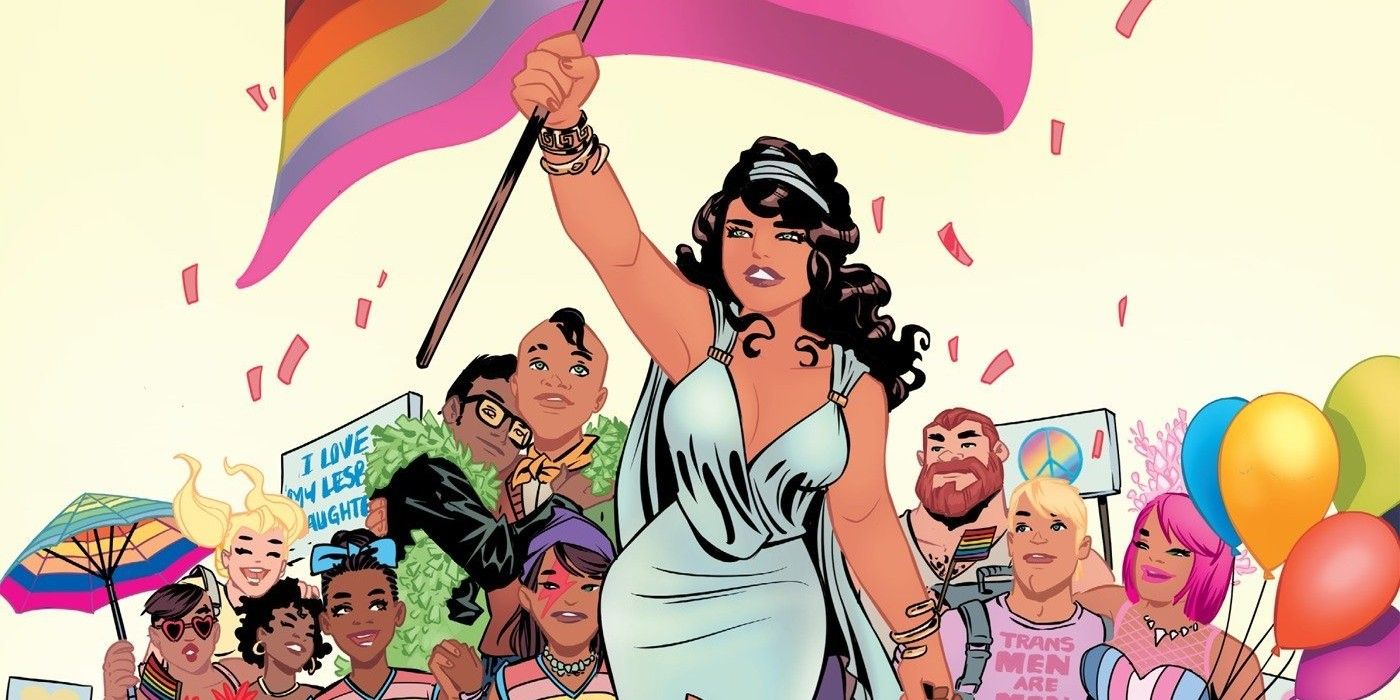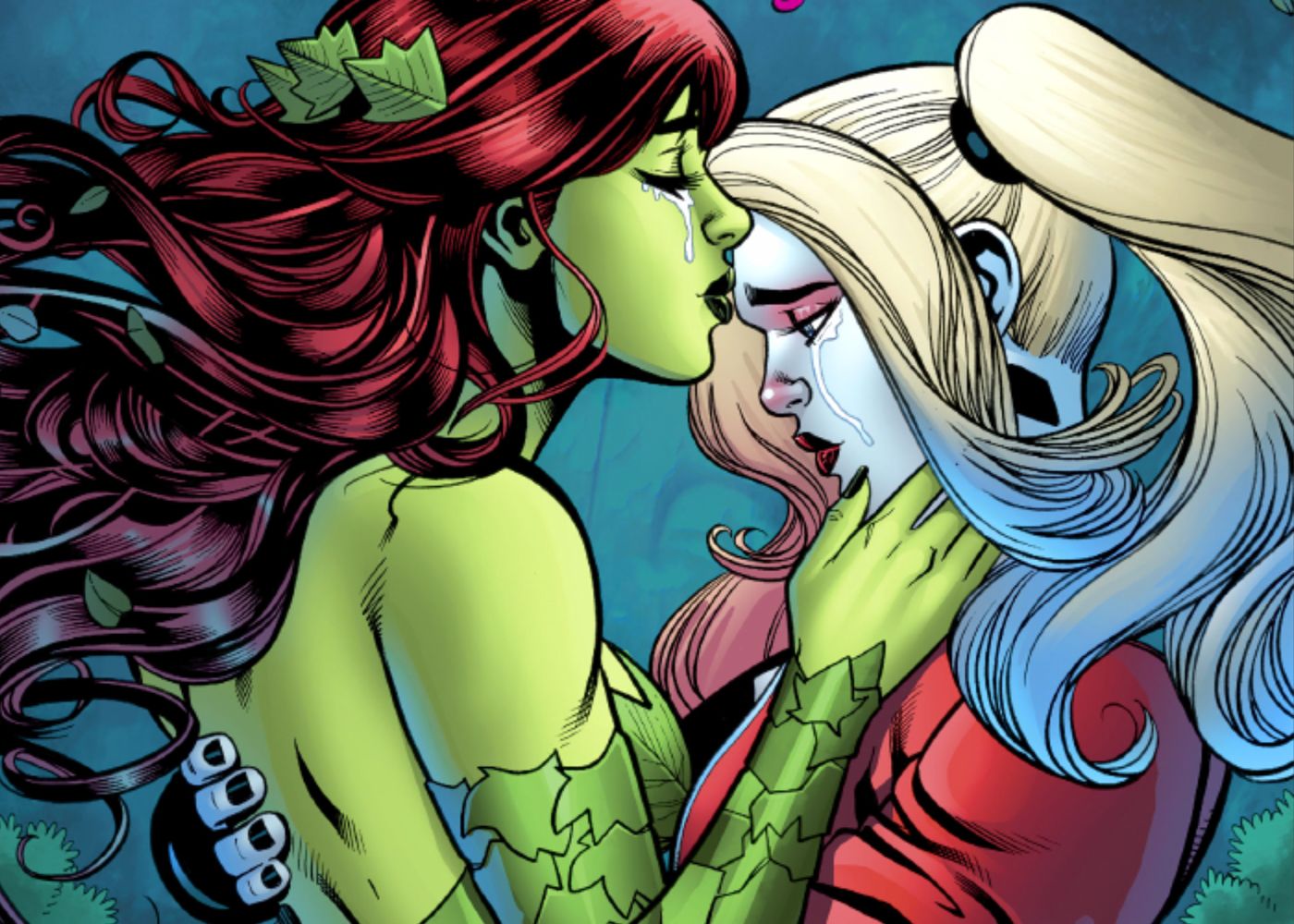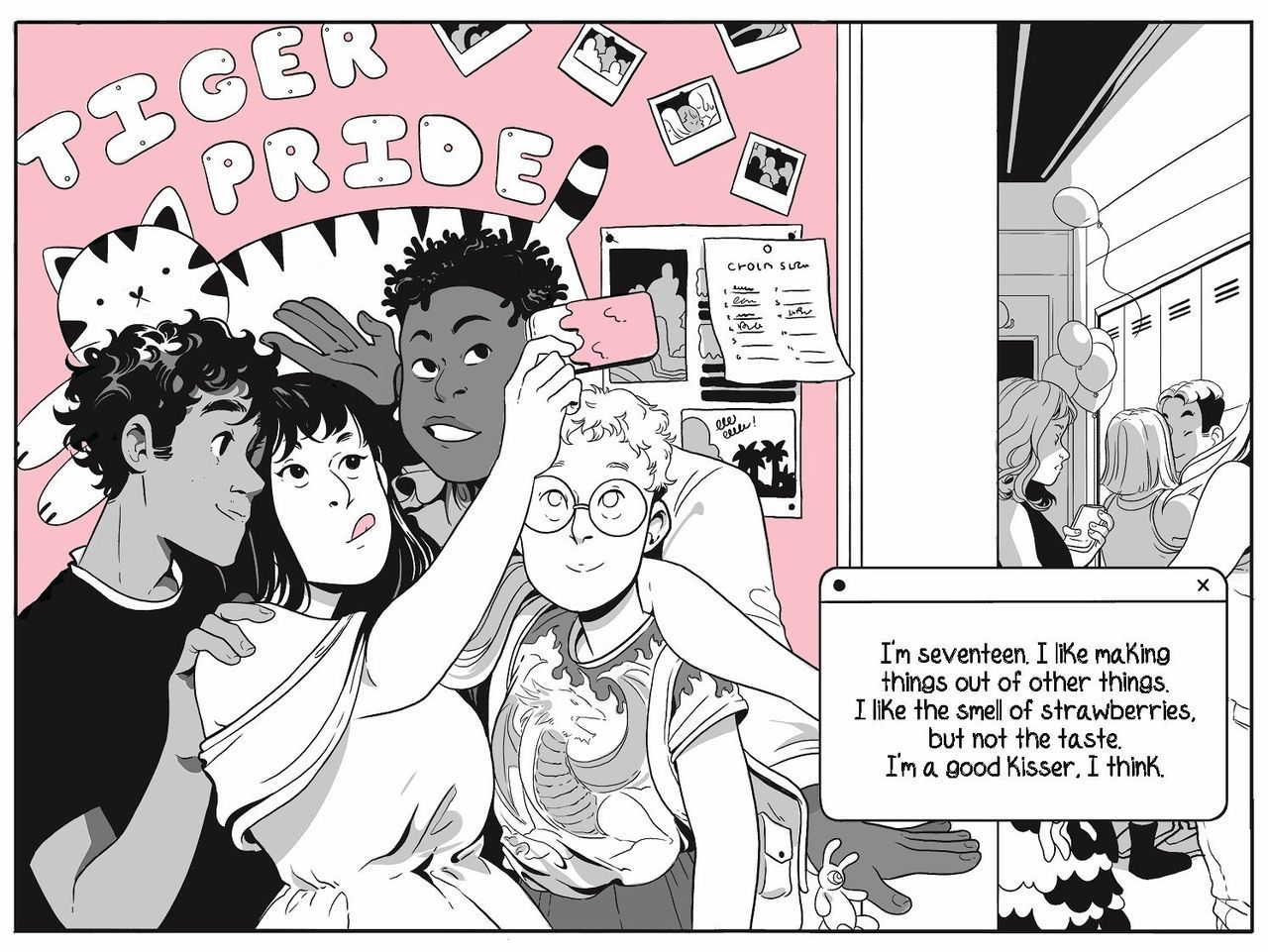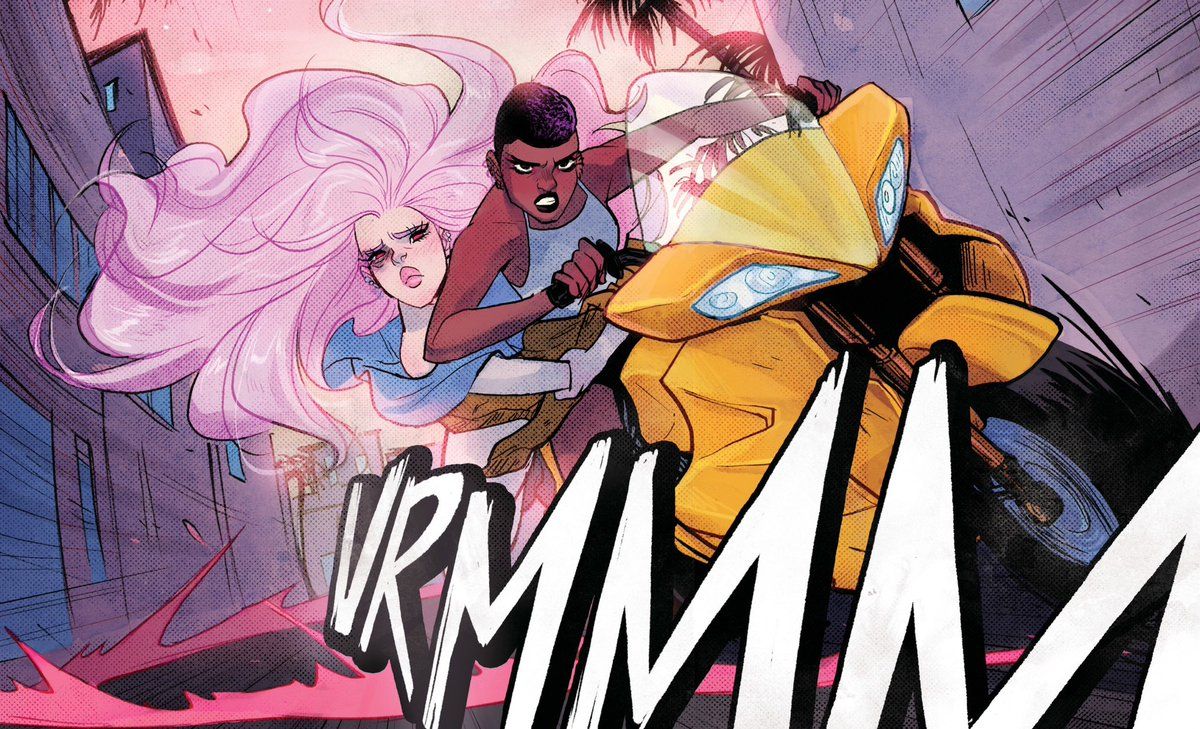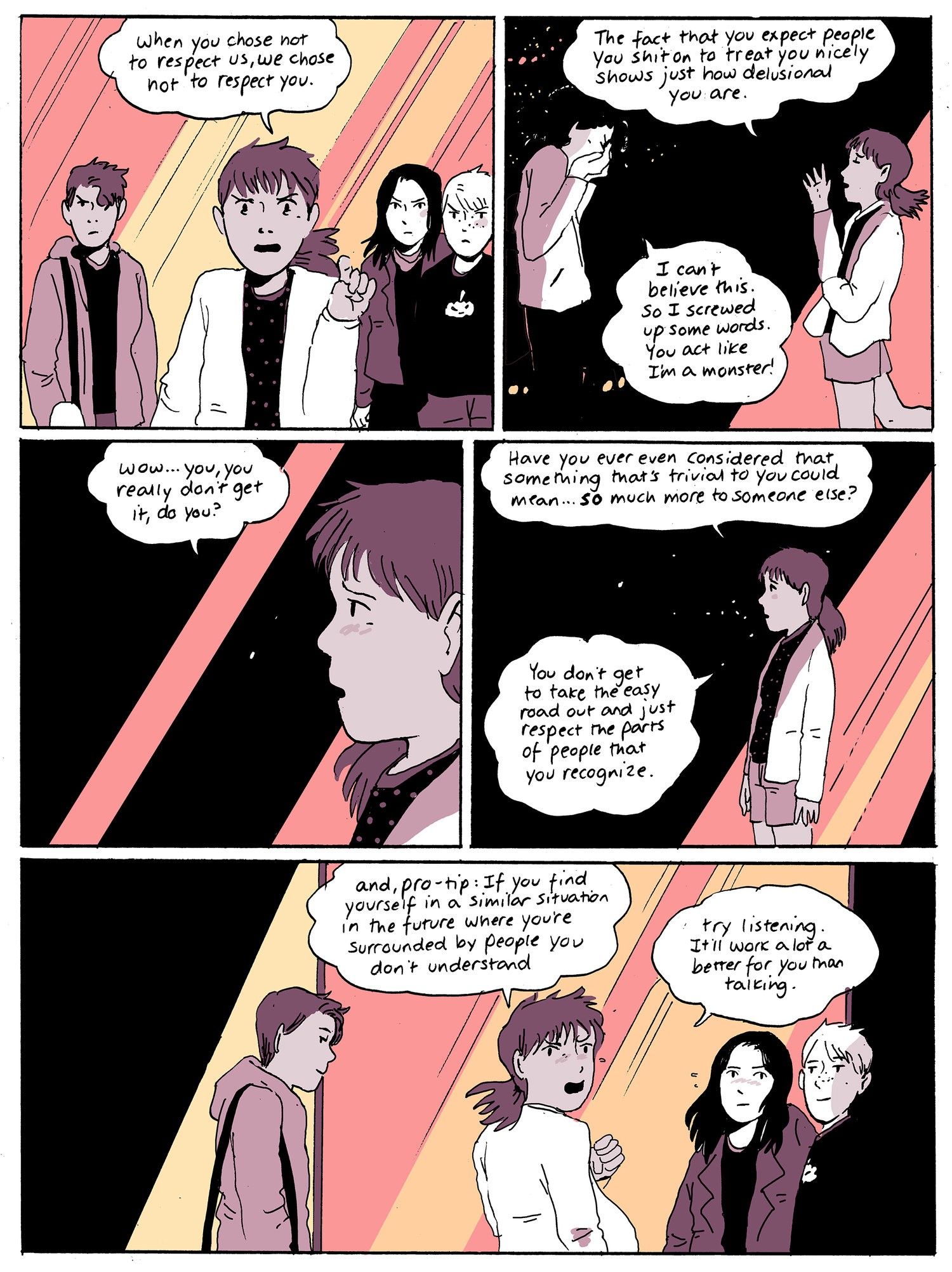Marvel and DC have improved their LGBTQ representation in recent years, both on and off page. From hiring queer creators like Marguerite Bennett, Leah Williams and Vita Ayala to featuring LGBTQ characters like Harley Quinn, Loki, Batwoman and America Chavez in solo runs that address their identities, these are steps in the right direction for more queer stories in the superhero canon. However, the Big Two are years behind indie comics when it comes to LGBTQ representation.
Improvements at the Big Two are monumental for LGBTQ representation in mainstream media, but these publishers still have room to grow -- especially given the backlash around Marvel's new non-binary hero, Snowflake, as well as DC "friendzoning" one of their most popular queer relationships, Harley Quinn and Poison Ivy.
Meanwhile, independent publishers and creators have been featuring queer comics on a grander scale for years. This year's GLAAD Media Award nominees for Outstanding Comic Book are dominated by independent publishers like BOOM! Studios, First Second and Image Comics. The comics nominated are ones that feature "fair, accurate and inclusive representations" of the LGBTQ community and the issues that impact them.
Three of the comics nominated this year, Laura Dean Keeps Breaking Up with Me, Bloom and The Avant-Guards, are excellent examples of how independent comics can elevate queer stories without the need for superheroes or villains to hook readers in. All three of these books are coming-of-age stories that focus on characters coping with their identities as well as their romantic and platonic relationships, developing them beyond just their sexualities.
While Marvel and DC also have fantastic coming-of-age comics that are nominated for the same GLAAD award, Harley Quinn: Breaking Glass and The Runaways are superhero comics first. The independent comics mentioned earlier rely on honest portrayals of what it's like to be a queer teen or young adult, stripping away the action and glam of mainstream comics in favor of the quirks and vulnerabilities that come with growing up as an individual and as a member of the LGBTQ community.
One of the most well-known queer comics out there is Fun Home by Alison Bechdel, a lesbian icon whose work informs pop culture in a major way. This autobiographical comic is about her struggle with gender roles, her eventual coming out and her complex relationship with her closeted father. It's a raw comic that is intimate, personal and relatable, even for those outside of the community; furthermore, it is one that is so separate from the traditional notions of what a comic book is, yet it is still transcendent and magical because of its honesty
These indie reads are snapshots of what it's like to be queer, celebrating both the differences and similarities LGBTQ people have with the wider world; however, indie comics also feature some of the best queer genre comics like Crowded, another GLAAD nominee. In this cyber-future story, Charlie has a million dollar bounty on her head, and the only person willing to protect her is one of the worst-rated bodyguards, Vita. The comic is so unapologetic when it comes its queer leads, and it's a breath of fresh air to see two queer women going on a bonkers, action-packed ride without their sexualities being a point of contention.
Motor Crush and Snotgirl similarly feature queer, femme leads who get to exist without their sexualities being their defining feature; however, their queerness and femininity are celebrated throughout their series. The queer leads in Motor Crush, Snotgirl and Crowded all have baggage, which makes them more relatable; all are unapologetically themselves, which makes them empowering; and all are in fantastical worlds which are accepting of their sexualities.
By moving beyond conflicts in queer narratives that focus on people being bigoted against the protagonists or the struggles of coming out, readers from the LGBTQ community get to see stories about people like them as opposed to the stories about pain and suffering. One of the best examples of this is in Tillie Walden's On a Sunbeam.
Walden, a queer comic creator and the youngest Eisner winner for her graphic novel Spinning, builds a beautiful intergalactic universe that features only women and non-binary characters in On a Sunbeam. It never addresses why every character is queer because the book is not about why it's this way, similar to how comics that predominantly feature straight characters aren't about why there are so many heterosexuals.
Originally a webcomic, On a Sunbeam is about found family at its core. The characters are so well developed that readers easily attach themselves to them, so by the end of the book, fans feel a part of their nonconventional, supportive family. The support they show each other is so uplifting, and it is best illustrated in the scene where Jules stands up for Elliot and their gender identity, which has been questioned by their superior officer.
Not only does this comic capture the importance of recognizing and understanding someone's identity, it is one of the far too few traditionally-published comics to feature a non-binary character. Non-binary, gender-fluid and trans leads are underrepresented, especially in mainstream publications; however, independent comics like On a Sunbeam, Woman World and Kim & Kim have these characters front and center. Kim & Kim, a rock and roll space bounty hunter epic, has a transwoman as one of the leads and is written by a transwoman, Magdalene Visaggio, who has gone on to explain how important creating Kim Q was during her transition.
"Kim Q is this realized human being who found herself in her transition and has not stopped trying to find herself. It’s not like she sat down, defined herself as a girl and stopped developing right there," Visaggio told io9. "Kim Q has a life. Kim Q hasn’t solved all her problems. Kim Q owns her past. It was kinda therapeutic, and it helped me get a little bit comfortable with the idea of transitioning."
Kim Q's story is important in comic canon because it is told by a trans woman. This character helped Visaggio through her transition and has most likely helped readers who are figuring out themselves and trying to feel more comfortable with their identities. She is a hopeful character despite not having it all figured out, which is something so many people need.
For more indie stories direct from LGBTQ creators, anthology series like Beyond: The Queer Sci-Fi & Fantasy and Beyond II: The Queer Post-Apocalyptic & Urban Fantasy feature the range of talent the community has to offer. Theatre of Terror! Revenge of the Queers is another anthology series, and the beauty of it is the fact that crowdfunding made the comic possible, which shows how supportive the community is of one another. The world of independent comics features some of the best queer creators and queer stories, and this article barely scratches the surface of what's out there. From coming-of-age stories that warm the heart, to deeply personal accounts that are masterpieces of vulnerability, to radical space adventures that take readers to the most gorgeous parts of the galaxy, these comics are some of the best the business has to offer.

